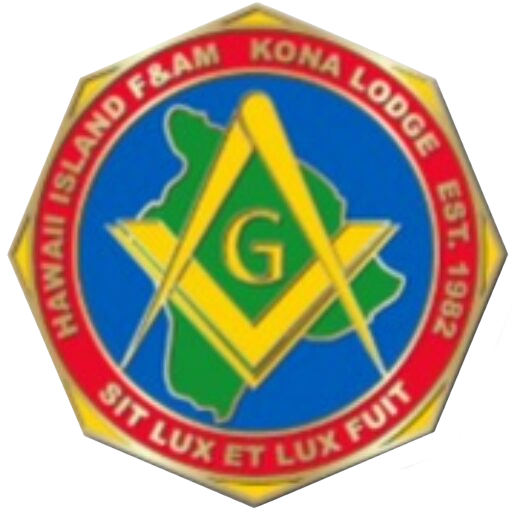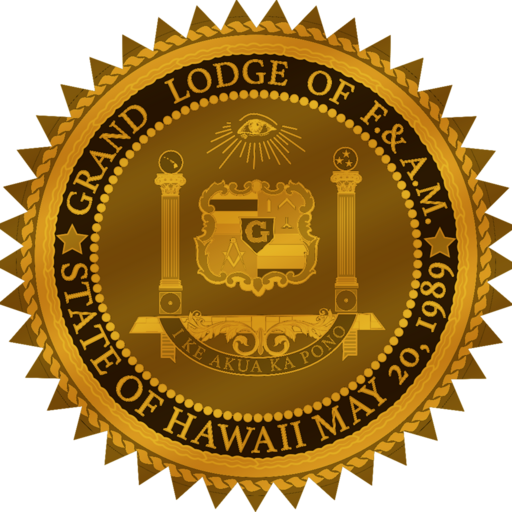HISTORY OF FREEMASONRY
The Origins Of Freemasonry
We are not sure at what point in time our craft was born. We do know it goes far beyond written record, and we believe it was not always called Freemasonry. Some of the ancient mysteries of Egypt, Greece, and the Orient influenced the ceremonies used today. These ceremonies were designed to test men, and to admit only those who were worthy. Our ceremonies are somewhat the same, only less physical in nature, and more spiritual in form. Over the ages Freemasonry, as we know it, slowly took form. It has evolved into a comprehensive, and effective form of fraternal teaching of basic morals, truths, and personal fulfillment. It ranks the development of the individual's reasoning capabilities highly and encourages the questioning mind.
"Free" and "Accepted" Masons
How did the words "Free" and "Accepted" originate? The ancient craftsmen were very skilled and their craft was considered to be indispensable to the welfare of both church and state. They were the men who built castles and cathedrals. For this reason, they were not placed under the same restrictions, as were other workers. They were "free" to do their work, travel, and live their lives in a manner that was in line with their duties. The Masons organized into "guilds," something akin to a trade union, and individual companies or groups of Masons contracted for specific construction projects. In the England of that time, various crafts (carpenters, distillers, pewterers, ironworkers. etc.) also organized into guilds, but most of the population worked under band to the owners of the land on which they lived. The word "Accepted" also goes back to the time of the Operative Mason. During the later years of the Middle Ages, there were few educated outside the monasteries of the church. The "accepted" Mason was originally a man who, in a lodge operative in origin or still partly so in character, was for all practical purposes of membership accepted as a mason. From this practice grew in course of time the use of the words "accepted" and "adopted" to indicate. a man who had been admitted into the inner fellowship of symbolic masons. Candidates were "accepted" into freemasonry no earlier than the mid-seventeenth century. We first meet the phrase "free and accepted" in 1722. By the late 1600's the demand for the type of architecture that lent itself to the guild type of operation was declining. Architecture itself was changing; and the numbers of men, as well as the number of operative lodges, were declining. Increasingly, Masonry adopted the legends and habits of the old operative lodges, for spiritual and moral purposes. As time went on, there became many more "Accepted" members than there were "Operative" members. Sometime in the eighteenth century, the "Accepted Masons" outnumbered the "Operative Masons" and Masonry became exclusively a speculative organization rather than an operative one.
Masonic History in the United States
It was inevitable that Freemasonry should follow the colonists to America and play a most important role in the establishment of the thirteen colonies. Freemasonry was formally recognized for the first time in America with the appointment by the Grand Lodge of England of a Provincial Grand Master in New York, New Jersey. and Pennsylvania in 1730. American Masons worked under foreign jurisdiction until 1731, when the first American Grand Lodge was established in the Commonwealth of Pennsylvania. One of the most romantic portions of all Masonic history lies in the story of the part played by Freemasons in the formation of our country. Without exaggeration, we can say that Freemasonry and Masonic thinking contributed most significantly to the founding of this great Republic. Many of the signers of the Declaration of Independence, as well as the drafters of the Constitution, were members of the Fraternity. George Washington was a staunch Freemason. He was the first of fourteen Masonic Presidents and the only one to serve as Worshipful Master of a Lodge and President at one and the same time. The others after Washington are Monroe, Jackson, Polk, Buchanan, Andrew Jackson, Garfield, McKinley, both Teddy and F. O. Roosevelt, Taft, Harding, Truman, and Ford of whom Truman and Andrew Jackson served also as Grand Master. In the struggle for independence many well known patriots, such as Paul Revere, Benjamin Franklin, John Hancock, Marquis de Lafayette, and Baron von Steuben were members of the Craft. No doubt Freemasonry was responsible for and shared much of their thinking and opinions. Much has been written about the participation of the Fraternity in the Revolution and the founding of America, and it is an episode of which we can be proud. Ever since that period, Freemasonry has grown and flourished, following closely the growth and expansion of the United States.

